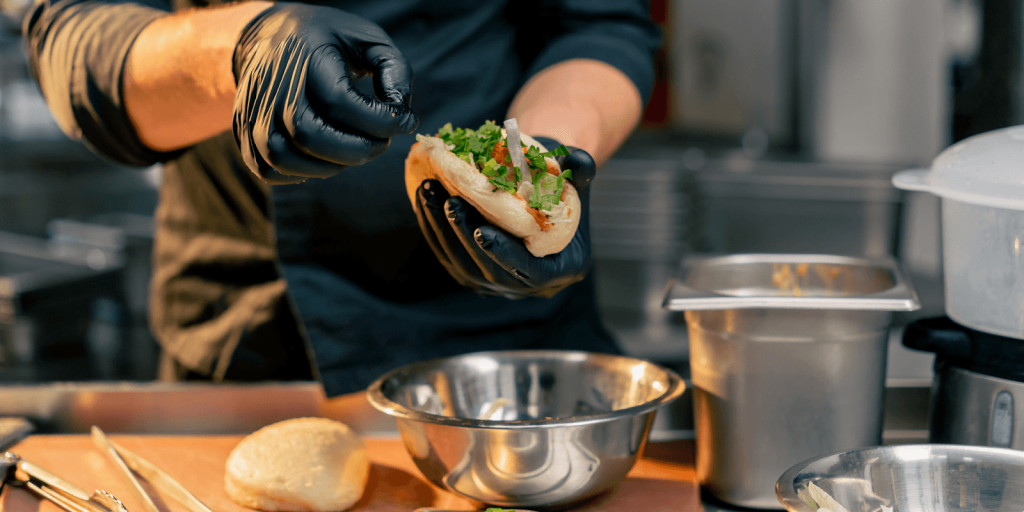By Omar Gouda
The Middle East and Africa’s food scene is being revolutionized by the Cloud Kitchen market. This delivery-only industry is booming, and the numbers prove it.
The market was already worth a massive $427 million in 2024, and experts project the market size will skyrocket to $1.074 billion by 2030. This makes the MENA cloud kitchen market one of the fastest-growing food-tech segments globally.

Why Ghost Kitchens Are Taking Over
![A deep dive into the GCC's cloud kitchen sector [part two] - Wamda](https://cdn.wamda.com/feature-images/685654a572a4b55.jpg)
What exactly is a cloud kitchen? It’s a professional kitchen dedicated only to delivery or takeout. That’s why they often get the nickname “ghost kitchens”.
The biggest win for operators is cost savings. By eliminating expenses like wait staff and the need for expensive prime real estate, these operations can cut costs by a huge 30–50% compared to a regular restaurant.
Cloud Kitchens use standardized operating systems, centralized supply chain management, and advanced technology to ensure your delivery food is quick, accurate, and consistently delicious. Tech, like in-house software and IoT oversight, is a key factor strengthening their competitive edge and driving sustainable market growth across the region
MENA’s Cloud Kitchen Unicorn: Kitopi

The MENA market is filled with large operators that run multiple virtual brands from just one location.
Kitopi (UAE) is one of the most popular and scaled platforms in the entire region. This success story started in Dubai in January 2018 and has since spread its operations across the UAE, Saudi Arabia, Kuwait, Qatar, and Bahrain.
Kitopi started operating by partnering with popular restaurant brands, taking over their delivery operations and enabling them to expand with minimal risk and zero upfront cost.
Their secret is their proprietary Smart Kitchen Operating System. This internal suite of technology applications optimizes literally every aspect of kitchen operations in real-time
Kitopi achieved unicorn status in 2021 after raising a massive $415 million Series C funding round, valuing it at $1.55 billion.
They’ve since grown into a hybrid B2B+B2C model, even acquiring major F&B groups like AWJ Investments, which operates beloved brands such as Operation Falafel and Right Bite. Today, Kitopi manages over 100 brands from more than 200 kitchen and outlet locations.
Other Regional Players on the Scene
Kitch (KSA/UAE), which has been available in the UAE and Saudi Arabia since 2021, is operating a hybrid model that introduces both existing and brand-new concepts to the region.
There’s also Kaykroo, a food tech platform founded in Dubai. Kaykroo entered the Saudi market in 2021 and already runs its entire portfolio, comprising over 77 digital-first brands just in Saudi Arabia.
Global giant Deliveroo is in the game with its Deliveroo Editions concept. This concept uses dedicated super kitchens to help partner restaurants expand into new zones without needing physical brick-and-mortar investments.
The Abu Dhabi-based platform The Cloud is also among the regional champions, focusing solely on using its technology to connect brands with partnering kitchens quickly and reduce the onboarding timeline across delivery apps.
The Tech Wizards Powering the Industry
The entire industry relies heavily on dedicated F&B technology companies that build the essential infrastructure.
Saudi Arabia’s FOODICS is a massive tech player, recognized as a leading payment and restaurant technology company across MENA. Founded in 2014, the company provides a cloud-based, all-in-one Restaurant Management System and Point of Sale (POS) solution.
The company has an ecosystem of over 100 apps that integrate seamlessly, helping businesses achieve huge efficiency gains and cost savings. Their smart system allows operators to run every single part of their business smoothly, covering everything from inventory and kitchen management to payment processing.
The Future Outlook
The MENA cloud kitchen model is so strong and mature that it’s attracting global attention.
Saudi Arabia and the UAE (especially Dubai) are leading this charge, thanks to advanced digital capabilities, high smartphone penetration, and favorable business environments.
WE ALSO SAID: Don’t Miss…When the Stars Aligned (and Dined): Carbone Dubai’s Glam Debut at Atlantis The Royal



